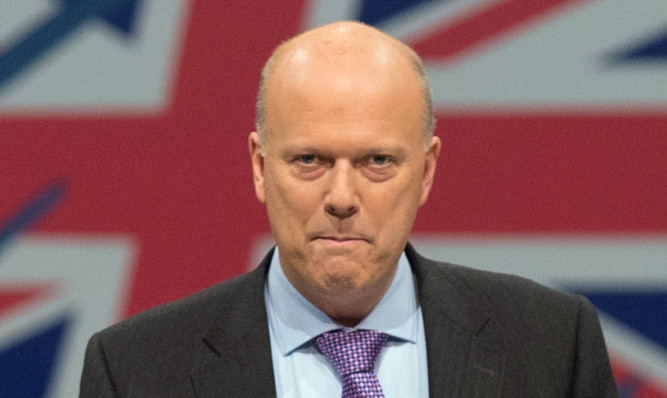Chris Grayling has insisted the Government’s controversial English Votes for English Laws (EVEL) is working as MPs warned the measures are likely to be removed by a future government.
Delivering EVEL was a Conservative manifesto pledge but there have been concerns about the way it has worked since it was introduced.
The Public Administration Select Committee said in a recently published report, debated by MPs on Thursday, that EVEL is too complex and likely to be scrapped because of opposition from other parties.
Meanwhile the report also suggested the measures are incompatible with the Barnett formula which is used to distribute funding to devolved administrations.
But the Leader of the House has outlined his belief that the procedure is working.
Responding to criticism from the SNP’s Pete Wishart during the business statement, Mr Grayling said: “I have to say I think that the English votes processes have bedded down pretty well in this House.
“I have to say that I don’t accept what you say about the changes we’ve put in place though in our manifesto they were set out in detail, they are the right thing to do.
“And of course at the moment it is still the case that your responsibilities are very different to my responsibilities.
“I have a duty to represent my constituents in areas like education and health, in those areas in your constituency it is a member of the Scottish Parliament who represents those issues.
“So it is of course only right and proper that we have a settlement that reflects the reality of devolution and give the English a fair say in what happens as well.”
Under EVEL it is up to the Speaker of the House to decide when a piece of legislation relates solely to England or to England and Wales to give the relevant MPs the opportunity to vote.
But that has provoked fury, particularly from SNP MPs, who say that EVEL effectively creates two classes of MP in Westminster.
Introducing the report to the House, the chairman of the committee, Bernard Jenkin, questioned the long term sustainability of the current EVEL measures.
“Our report notes the stridency of the opposition to the new standing orders from the opposition benches – all the opposition benches – something which underlines their vulnerability,” he said.
“Only the Conservative party voted in favour of the new arrangements and these standing orders therefore face a high risk of being overridden as soon as there is a non-Conservative majority in the House of Commons.”
Mr Jenkin said that a “piecemeal” approach to constitutional reform had caused “chaos”.
He said: “Above all of most importance, however, is that our report points out that the ad-hoc approach to change in the constitution of the union, which only dates back to the devolution reforms initiated by the then Labour government in 1997, and which has treated each of Scotland, Wales and Northern Ireland and indeed England in different ways at different times has been characteristic of constitutional reform since the 1990s.
“The Government must abandon this ad-hoc approach and explore a comprehensive approach for the future of relationships between the Westminster parliament and the component parts of the United Kingdom.”
